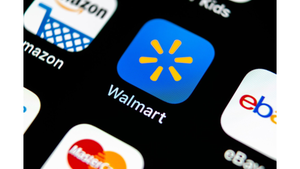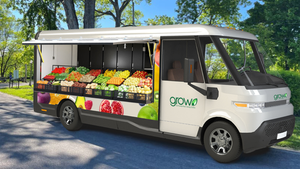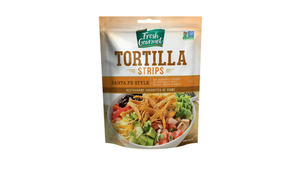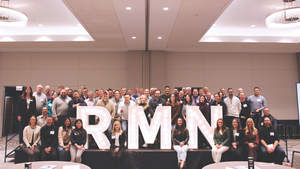THE AISLES HAVE IT
GARDEN CITY, N.Y. -- You may not be able to judge a book by its cover, but at Melmarkets Foodtown, you can judge a store by its beverage department."A well-stocked and well-presented beverage department is terribly important to the overall success of the store," said Dick Salmon, senior vice president of Melmarkets here, which operates 17 stores on Long Island."When she steps into that aisle, it should
June 13, 1994
RICHARD TURCSIK
GARDEN CITY, N.Y. -- You may not be able to judge a book by its cover, but at Melmarkets Foodtown, you can judge a store by its beverage department.
"A well-stocked and well-presented beverage department is terribly important to the overall success of the store," said Dick Salmon, senior vice president of Melmarkets here, which operates 17 stores on Long Island.
"When she steps into that aisle, it should give the customer the impression that she has a fresh, full aisle and selection for herself. But when it's empty, and the variety is down and the shelves are dirty, she feels like she'd like to move on," Salmon said during an interview with SN.
"The beverage department is a very, very important part of our store system. We sell the highest share of beverage -- soft drinks, beer, soda, juices, sports drinks, water -- of anybody in this marketplace in terms of sales per square foot,"
he said. Beverage comprises around 3% of Melmarkets' total store distribution.
The chain's beverage strategy is partly responsible for its strength amid larger competitors. "Pathmark has 18% of the total store customers' business in [Long Island's] Nassau and Suffolk counties, Waldbaum's has 22%, King Kullen has 18%, Grand Union has 5%. And we have 11.9%, but we only have 17 stores," Salmon added. The chain is a member of Twin County Grocers cooperative, Edison, N.J.
SN spoke with Salmon in the beverage aisle of Melmarket's 70,000-square-foot unit in Inwood, N.Y. The store was bustling with activity at midmorning on a weekday, and the beverage aisle was no exception.
"I want to buy and spend my money in here, but I can't if you're blocking the shelves," said one shopper, motioning for Salmon to move so she could reach some 2-liter bottles of 7-Up.
"Mel Weitz himself will personally deliver them to your house," Salmon joked, referring to the chain's president, who is somewhat of a local celebrity.
The typical Melmarkets store has a full aisle of soft drinks, "new age" beverages and water, and an adjoining half aisle of beer, wine coolers and mixers, across from the salty snacks. The Inwood store has 20 feet of beer and 8 feet of wine coolers.
The chain's beer volume literally weathered the storms that blasted the region last winter. "Seasonally, we probably had the worst time for beer and soft drinks that we ever had this winter because we went through three months of constant snow. And yet when I looked at our beer sales, my sales for Coors were only off 3%, and Budweiser was at a break-even. I was amazed. I thought it was a lot worse than that," Salmon said.
The beverage department also plays a role in Melmarkets' festive shopping atmosphere, Salmon said, alongside its in-store scratch bakeries, extensive ethnic offerings, clean, well-lit aisles, massive displays and friendly sales help.
The chain makes extensive use of endcap displays to build sales, for example. In the Inwood store, eight massive endcap displays reached for the ceiling on each of the three cross aisles, featuring items such as Mountain Dew at 79 cents a 2-liter bottle, and Barq's root beer and Slice orange soda at 89 cents a 2-liter bottle. Side stack displays featured cases of Coca-Cola, beer and Arizona iced tea at hot prices.
"With the additional landscape we sell off an awful lot on the traffic that rotates around the store. It is part of the service look that you have in the supermarket, on the endcaps, the wings and the stacks. The customer shops and while walking she sees buys on the endcaps, so it is impulse sales," he said.
Salmon explained that while the 89-cent Slice on endcap display was being sold at "dead cost," it is still a profit-maker in the long run.
"The beverage business is based on incentives, and if you can reach and obtain certain levels you can make certain monies that by year-end can be hundreds of thousands of dollars. But you have to really keep your eye on the ball, and take things very intelligently in order to arrive at those levels. Otherwise you can get stuck, which drags down the margins for the rest of the store," he said.
To build sales, Melmarkets heavily advertises its beverage offerings. Each week's circular contains at least one-third of a page devoted to beverages under the heading "Big Mel's Beverage Barn."
One recent ad featured 19 different items, including Dr. Brown's soda at 59 cents for a 1-liter bottle, Pepsi at 89 cents a 2-liter bottle and a 15-pack of 12-ounce Stroh's cans for $5.49.
Melmarkets stores use a cluttered approach to help build sales.
"A lot of stores keep their major aisles wide open, but the philosophy that Mel and I come from is to lock them in the aisles and let them buy their way out.
"That philosophy goes back to when Mel was president of Big Apple and I was vice president of operations. What you see here is what we did there. "The ends, the wings, the caps, the stacks are all integral. Lock them in the aisles. They're climbing over it and buying it to get out of the aisles. It works," Salmon said.
Salmon said that while the approximately 1,100 stockkeeping units in his 1,000-linear-foot beverage department is about on par with his competitors', he carries substantially less private label than they do. In the Inwood store, for instance, there was only a 4-foot section of Foodtown soda.
"I don't push private label. With Pepsi and Coke with 69-, 79- and 89-cent prices on a $1.69 2-liter item, why in God's name is anybody going to be paying 83 cents or better for this," he said, pointing to a 2-liter bottle of Foodtown cola.
"I don't know where people get the idea that private label is so profitable. If it breaks, you don't get any credit for it. When it comes in, you have to pack it out, so that is your labor. And labor today is 10%. That is 10% off the profit.
"If the margin on Coca-Cola is 22%, and the margin on private label is 23%, how does that make up for the 10% labor? All of these other products are serviced by people who come in, write up the order, go out to the truck, unload it, wheel it in, stamp it and price it and pack it out. With private label you have to do all of that yourself," he said.
"The consumer wants the best possible product at the cheapest possible price, and I have always fought to give her that. I don't push private label in snacks. I don't push it in soda. I don't push it in anything. There are people who do. But those stores also have a tremendous blue-collar trade, and I don't have a blue-collar trade," Salmon said.
He said Melmarkets typically attracts Long Island's more wealthy consumers.
For the most part, the chain's beverage departments are arranged in a cookie-cutter format. "The only store that is different is Roosevelt, because it is in an area where the consumers there have fewer disposable dollars. We carry a lot less SKUs in that store because the customers only want the basics," he said.
Salmon said the fastest growing sector of his beverage aisle is bottled water. Sales have been aided by news reports showing a possible link between Long Island's municipal water supply and breast cancer, he said.
"I'm breaking out pallet loads of gallons of water and 2- and 5-gallon packs. Water is just barreling into the stores. You get a truck load of soda in a week, but you can get a truckload of water in a day. It comes in and goes right out. "We have water on sale every single week, and sometimes we'll have weeks where we have a European style vs. a domestic," he said, citing S. Bernardo water imported from Italy and packaged in a 1.5-liter ribbed bottle and on sale for 69 cents a bottle. It is designed to compete with Evian, which Melmarkets retails for $1.59.
"Our private label is imported from Italy and is also 69 cents. It is a hell of a value. Then we have Naya, which is imported from Canada, and that is a little bit more, maybe $1.09," he said.
Salmon said changing consumer tastes cause Melmarkets to reset its beverage aisles about every four months.
"The major period is March to December -- nine great months for beverage. If you have any tough times, it is really just January and February and early March, and you may have to promote stronger during that period to keep case sales up," he said.
He said this year's spring-summer reset is focusing on the new-age beverage section. Melmarkets also is planning on installing checkout coolers from Coke and Pepsi to capitalize on front-end soft drink sales.
"We feel the new-age segment has changed drastically over the last year. A lot of the things that were great going into last summer are now on the way out. The cappuccinos are dead, Sundance is dead, and even in the bottled egg creams, only the chocolate sells. The vanillas and strawberries do not," he said.
He said space is being allocated in the new-age section for the new single-serve sports drinks from Coke and Pepsi, while large sizes of Gatorade will continue to be sold in the juice aisle.
"The tea market has grown substantially. No matter how much space you have for teas, you can't have too much," he added. Nonetheless, while sales of Snapple are very strong, facings will have to be reduced to make room for Fruitopia, a new drink from Coca-Cola, he said. Salmon was also looking at discontinuing No-Cal diet soda in 16-ounce bottles to make room.
"This past year, we've had practically no growth in diet soda. What we are finding is that the consumer is going after the Snapple-type drinks, the juice drinks, the teas, the Quests and those offer us better margins."
About the Author
You May Also Like




